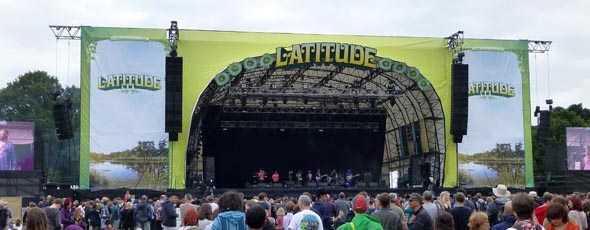
What was born in a tent, died in a tent. Worn like the skin of one of Buffalo Bill’s victims in exactly the kind of enclosed corporate space it was built to dismantle, Occupy London’s Tent City University (TCU) was recently taken to a branded woodland glade in Suffolk where it was stripped of political meaning.
A true occupation of the Latitude festival would have highlighted the vastly unfair labour practices used by the organiser, Festival Republic. It would have challenged the main sponsor, Vodafone, about their continuing refusal to pay a fair share of taxes and questioned the value of packaging protest culture into a product bought at £100 for the weekend. Whilst Occupy’s outreach efforts have always been of paramount importance, especially since the eviction of the camps, outreach in such an insular, paid-for space is not nearly as effective as time spent working in disaffected communities.
Occupy Latitude, in failing to engage with any of these issues, became merely a simulated occupation at the heart of Festival Republic’s event, an occupation sadly lacking the inclusive diversity and indignant dialogue that made Tent City University what it was at St Paul’s. Occupy Latitude predominantly provided a platform for ‘celebrity’ voices, for those who use the Occupy movement as a stylish and attractive backdrop to their one-man plays rather than daring to engage in the movement’s challenging collaborative processes. Those more intent on padding their CVs than giving a platform to the voiceless put themselves forward to perform, and to be managed by PR agents who had previously muffled the raw cries emanating from St Paul’s in favour of corporate-style ‘messaging’.
Whether those who believe they ‘created’ Occupy London always intended to distil it into a reformist lobbying campaign, or months of institutionalisation in positions as key actors warped their intentions, the result is the same: Occupy has become a sanitised, pseudo-radical space for hire.
As numbers dwindle, opportunists who never truly held any radical perspectives have begun the process of commodifying Occupy. Our process is being bypassed and our principles are being ignored, suggesting that horizontalism and consensus-based decision-making are mere inconveniences.
High-handed and non-collaborative approaches abound. A finance request to fund the use of the TCU tent at Latitude was brought to an Occupy London general assembly without mention of its intended use, while a request to fund Occupy Latitude’s publicity material was blocked at the same assembly for the reasons outlined here. Occupy London’s communication channels were also co-opted as part of the Occupy presence at Latitude, without prior discussion with those involved in moderating them.
Slavoj Žižek’s insights into cultural capitalism describe the idea of ‘protest as product’. With the inclusion of an Occupy presence at the Latitude festival, the attendees didn’t simply purchase a ticket, they also bought redemption from being a consumer. Today’s cultural capitalism embeds commercialisation in the act of charity, in order to make us feel better about the products and services we are using. Peace and love are commodified, packaged and sold. Che Guevara T-shirts are purchased by those who wish to ‘demonstrate’ their beliefs. The irony is that corporations and the system itself profit from the sale of counter-culture, which is now such a mainstream and commercially neutered idea it has left much revolutionary discourse sounding more like the latest trendy advert.
We find ourselves surrounded by a failing economy, unemployment, and a widening gap between rich and poor. The altruism sold in consumerism merely cements division through misdirection.
By Jack Dean & Sara Cameron









